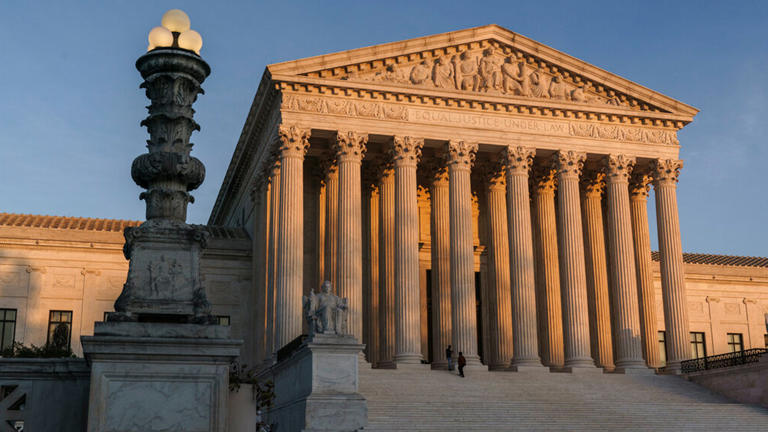Opinion by B.J. Rudell, opinion contributor • Yesterday
For half a century, the pro-life movement resided in a self-made and self-contained cocoon, operating with equal parts political savvy and practical ignorance.

Pro-life movement is the dog that caught the car© Provided by The Hill
Politically, they hammered the consistently more popular pro-choice position, seemingly made permanent by Roe v. Wade. They demanded the eradication of women’s bodily autonomy in favor of the unborn’s bodily autonomy — even if that “body” was merely a cluster of cells.
The movement pinned down progressives and their pro-choice allies, drawing out votes and public statements based not on when abortions should be legal, but rather when they should be illegal. Pro-life proponents turned a little-known procedure and an amorphous timeframe into a push for a “partial-birth abortion” ban, tying late-term and at times even second-trimester abortions to infanticide, suggesting that women regularly conspired with doctors to simply murder babies they no longer wanted.
The movement fed off of horror and disgust from the right, as well as the left’s disunity governing the sliding scale of abortion rights.
The power of the pro-life movement was that it would never quit and never compromise. Its disciples were true believers in the unborn’s “sanctity of human life.” For half a century, Republicans advanced an absolutist, unforgiving, immovable position. As written in the GOP’s most recent party platform, “the unborn child has a fundamental right to life which cannot be infringed.”
The long game was brutally effective.
A significantly higher percentage of pro-life voters became single-issue voters compared to their pro-choice counterparts. Red states began chipping away at Roe’s foundation, backed by a motivated corps of arguably the nation’s most rabid conservative operation.
But in the aftermath of last year’s Dobbs v. Jackson Women’s Health Organization ruling by the Supreme Court, something strange happened: The pro-life movement’s muted celebration looked more like the end of a midseason baseball game than the end of a 50-year battle for supremacy.
In most red-dominated states, they waited months to change abortion laws. For example, it took ultra-pro-life Florida nearly a year to get something on the books.
Think about that: A governor whose increasingly dim path to the White House cuts straight through the pro-life movement couldn’t get a deal done until 11 months after the leak of the Supreme Court’s Dobbs ruling, and 10 months after the ruling went into effect — and by most accounts, his actions did little to bolster support for his flailing non-candidacy, while also generating increased ire from the nation’s much larger pro-choice population.
This is where political savvy and practical ignorance collide.
The GOP’s pro-life commandment has no wiggle room.
For half a century, they decreed that from the moment of conception, a human life is created and that life has a “fundamental right” to continue living. No questions asked. No exceptions.
But Dobbs changed the game. After two generations of platitudes disguised as policy, Republicans were handed the legal means to eradicate abortion — to live up to the principles of their most sacred doctrine.
And then states like Florida waited months — close to a year — hemming and hawing on devising a political solution to what for 50 years had supposedly been their holy humanitarian mission.
Why the delays? Why the exceptions for rape, incest, and the life of the child bearer? Why is the perennial frontrunner for the GOP presidential nomination largely silent on whether to ban abortions?
Because this movement was never pro-life.
During Roe, they could be stridently rigid. But with the onset of Dobbs, once they were forced to act on these supposed convictions, they’ve appeared woefully unprepared. They clearly never planned for this shift in responsibility — from tyrannical evangelicals to politically calculating legislators.
It has become evident that Republicans are, in actuality, “partial lifers.”
There is a sliding scale of what’s acceptable politically, and they’re desperately trying to figure out where that is. It’s no longer about protecting life from the moment of conception; it’s about protecting their political careers through the moment the polls close.
And now, they must rein in an increasingly divided flock while fending off an increasingly motivated opposition.
These are trying times for a majority of Americans who believe that a woman — not the government — should have ultimate control over her body. If there can be any silver lining in these otherwise horrific developments, it’s that this new “partial-life movement” — once one of the nation’s most dominant political forces — has been exposed as a feckless morass of contradictions.
Ahead of 2024, the timing couldn’t be better for a reinvigorated and more unified pro-choice America.
B.J. Rudell is a longtime political strategist, former associate director for Duke University’s Center for Politics, and recent North Carolina Democratic Party operative. In a career encompassing stints on Capitol Hill, on presidential campaigns, in a newsroom, in classrooms, and for a consulting firm, he has authored three books and has shared political insights across all media platforms, including for CNN and Fox News.
The Hill.


















